Rubus and Ribes Germplasm Collections
Soft fruit production in Scotland is a valuable sector within the agricultural/horticultural landscape, occupying a total of 1860 ha in 2008, of which around 540 ha are raspberries (Rubus) and 270 ha blackcurrants (Ribes). The value of these crops in Scotland is around £12 m annually for raspberry and around £0.79 m for blackcurrant, although the latter value rises to an added value of over £200 m within the UK blackcurrant processing crop. To enable the soft fruit industry in Scotland and the rest of the UK to continue to thrive, the availability of pathogen-free planting materials, in the form of the EU Plant Health Certification Scheme, is vital to the success of the industry.
High health plants
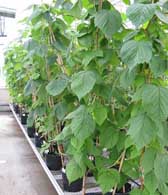 The James Hutton Institute is the sole UK establishment with the expertise and facilities to produce pathogen tested Rubus and Ribes nuclear stock to enter the EU Plant Health Certification Scheme. The Scheme operates to ensure that the Scottish and UK soft fruit industry has access to clean planting material for sustainable cropping.
The James Hutton Institute is the sole UK establishment with the expertise and facilities to produce pathogen tested Rubus and Ribes nuclear stock to enter the EU Plant Health Certification Scheme. The Scheme operates to ensure that the Scottish and UK soft fruit industry has access to clean planting material for sustainable cropping.
We provide high-health plants for propagation. The release of this material is not only essential to the UK soft fruit industry but fundamental to the successful release of new cultivars from the Rubus and Ribes breeding programmes at the James Hutton Institute.
Because of its reputation and integrity in this role the James Hutton Institute is recognised as an international centre for the supply of such germplasm for scientific and commercial use worldwide.
Soft fruit germplasm collections
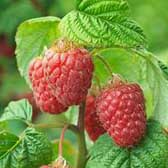 The James Hutton Institute has maintained high-health collections for these species, including current and newly available cultivars, for over 30 years.
The James Hutton Institute has maintained high-health collections for these species, including current and newly available cultivars, for over 30 years.
The collections underpin Scotland’s position as a major scientific and commercial centre for these species, attracting expertise, research collaborations and commercial income, and the pathogen testing protocols developed and used at the James Hutton Institute are accepted within the global fruit industry as the best available.
Currently, the James Hutton Institute maintains more than 100 pathogen-tested mother stock cultivars and selections of Rubus and over 40 of Ribes.
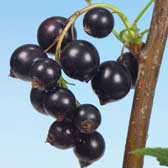 We also maintain one of the largest germplasm collections in the world under glass and it has now been extended to a germplasm collection in the field.
We also maintain one of the largest germplasm collections in the world under glass and it has now been extended to a germplasm collection in the field.
This is an invaluable resource for the soft fruit group at The James Hutton Institute and research establishments throughout the world.
With the increasing acreage of blueberries (Vaccinium) in Scotland and the UK the addition of this new crop has clear potential to strengthen Scotland’s position in this sector, due to their perceived health benefits and the crop timing in a global context.
Facilities at the James Hutton Institute
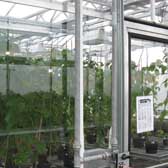 The Rubus and Ribes Pre-basic stock collections are maintained in a ‘state of the art’ facility. Each glasshouse cubicle has a computerised environmental management system controlling heating, venting, supplementary lighting, photoperiod, shading, and automated irrigation. This facility is unrivalled in the UK.
The Rubus and Ribes Pre-basic stock collections are maintained in a ‘state of the art’ facility. Each glasshouse cubicle has a computerised environmental management system controlling heating, venting, supplementary lighting, photoperiod, shading, and automated irrigation. This facility is unrivalled in the UK.
The soft fruit quarantine facility is essential for the worldwide acquisition of germplasm accessed by the Rubus and Ribes breeding programs and for use in experimental research at the James Hutton Institute.
Pathogen testing at the James Hutton Institute
- All pathogen tests adhere to both UK schemes and the European and Mediterranean Plant Protection Organisation (EPPO) guidelines.
-
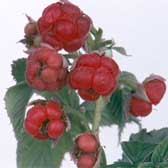 Plant material is tested using a combination of biological and molecular techniques (ELISA, Sap testing, Graft testing, nested PCR, RT-PCR, Crumbly fruit test and visual examination for symptoms).
Plant material is tested using a combination of biological and molecular techniques (ELISA, Sap testing, Graft testing, nested PCR, RT-PCR, Crumbly fruit test and visual examination for symptoms). - Rubus plant material is screened for approximately 26 viruses and 2 oomycetes and Ribes for approximately 14 viruses
- Commercial testing also provides an important service for Scottish, UK and worldwide growers and propagators.
Contact: Alison Dolan





